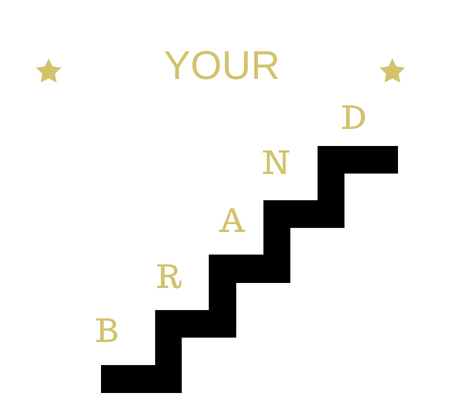3 plus 1 reasons for a small online shop to have an affiliate program
One of the challenges that a small online shop faces is keeping up with the big rivals. While it may seem quite difficult to compete with them in terms of marketing and sales, these days e-commerce represents unique opportunities for smaller retailers to build their brand awareness not only in the local community but also globally. If you run a small online shop and you are looking for a savvy way to increase your sales without a big budget, then affiliate marketing might be just the right option for your business.
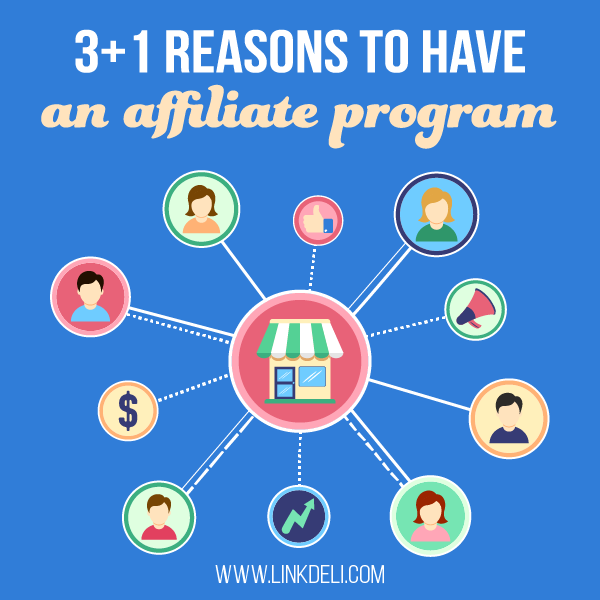
Affiliate marketing represents a great lucrative revenue funnel for any online merchant who sells products or services and wants to expand his business reach worldwide.
But what is affiliate marketing?
The term “affiliate marketing” or “performance marketing” refers to online marketing and advertising programs in which advertisers (a.k.a. “retailers” or “merchants”) pay affiliates (a.k.a. “publishers”) when a qualified action is completed. Affiliates are bloggers, website owners, YouTubers, or people who are active on social platforms such as Facebook, Twitter, Instagram or Pinterest who have applied to become affiliates and have been accepted as such by the owner of a specific affiliate program. Affiliates earn a commission only if their promotion results in actual required action. The required action is most often a sale, but can also be submitted personal info in case of CPA (Cost Per Action/Cost Per Acquisition).
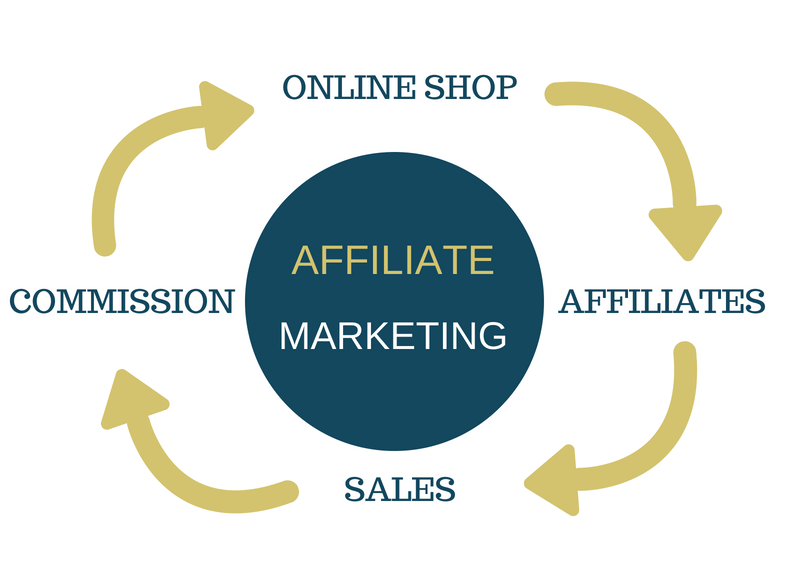
Performance marketing also means that the publisher (blogger/ YouTuber/ Instagram celebrity) is paid by results rather than upfront. And by results, we mean that the total they receive is a percentage of the sales they generate or are paid a fixed fee but only after a required action has been fully completed.
What does this mean for your business? This means that any business can set up an affiliate program and hire an army of affiliates to work for them without paying anything before results start to trickle in. You as the owner of an affiliate program for your online shop pay only if and when very concrete results of your affiliates’ work start to show.
That is why it is one of the most powerful marketing techniques especially for businesses with a low spendable budget.
The whole process can be explained rather simply, through an experiment:
For the sake of argument, let’s say that you run an online shop where you sell sejoufls.
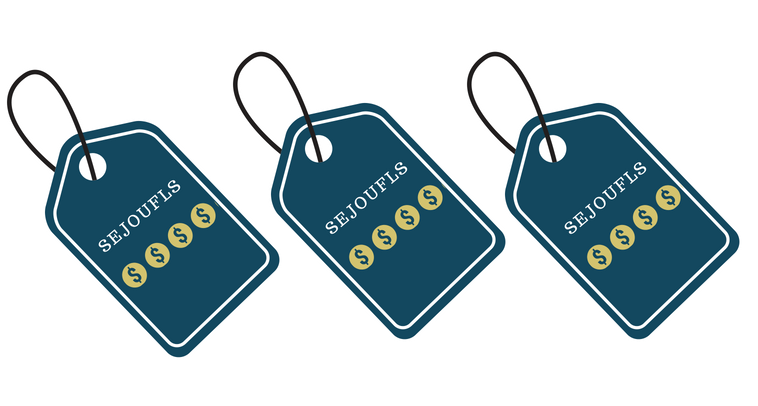
A sejoufl is an imaginary product and sells for $40 a piece. You opened up a shop just a few days ago. Your shop is small and you want to advertise. But sometimes reaching the right people that will become your customers is a tricky process.
Running AdWords or Facebook Ads campaigns will probably cost a lot, and without proper guidance, it will surely burn through more money than it will generate. So, you decide to turn to a famous blogger to promote your awesome sejoufls to his audience which you know it fits the profile of your customers.
So how do you pay the influencer that you want to promote your products? Either upfront, which does not guarantee anything regarding sales, or based on performance, which essentially means you will be paying them depending on how many sales they will bring to you through their blog post, video, etc.
And THIS is exactly how performance marketing works!
So, here are the numbers:
Your sejoufl sells to the client for $40 and you have, let’s say, a profit margin of 50%. So when you sell one, you get $20 in your pocket.
Now, you bring in an influencer in the equation, so they can promote the product.
Let’s see how things work when you use classic paid advertising.
If the influencer in our example asks for $1000 in advance to promote the product. With a quick calculation, you realize that you need to sell 50 sejoufls just to break even with the amount you paid for promotion. Selling 100 of them, would give you a profit of $1000 (100pieces x $20net profit per piece) - $1000marketing expense = $1000total
Essentially, in this case, you’re selling each sejoufl for $10 profit per piece instead of the original $20.
As you can see, with classic paid advertising you need to pay upfront while the results of the promotion are unpredictable. With affiliate marketing, you spend nothing upfront and you pay only after the sales have been completed.
I’ve put together a small google sheet so you can play around putting in numbers. You will see that the point at which the paid promotion and the affiliate sales perform the same is rather high for our example. Your numbers, of course, maybe totally different. Another benefit of using affiliates to promote your business is the scalability of this kind of promotion. If you want to go big, it’s easy to do it since you pay only for results. This means that the blogger will get paid AFTER you have completed your sales so you do not need to allocate a budget for this. You just share a piece of money that they brought in instead of paying up front. And if the campaign does not bring anything, no need to worry, you pay nothing!
Another benefit of using affiliates to promote your business is the scalability of this kind of promotion. If you want to go big, it’s easy to do it since you pay only for results. This means that the blogger will get paid AFTER you have completed your sales so you do not need to allocate a budget for this. You just share a piece of money that they brought in instead of paying up front. And if the campaign does not bring anything, no need to worry, you pay nothing!
In our days, sales are all about influence. This is most obvious on Instagram where the big names get paid thousands of dollars to use or be photographed with specific products.
As big names want big money, this is where their interests and the interests of business converge. Performance marketing is the way to go for small shops that do not readily have a big budget to spend on promotion.
So, if some bigshot blogger brings a lot of people to your online shop, they will get compensated depending on their performance rather than how much money you can spend upfront. And this is not only good for you, but for the bigshot blogger as well. It's a mutually beneficial relationship.
Affiliate Marketing vs. Paid Posts. You Will Only Pay For Results.
Affiliate marketing comes in contrast to paid posts where a celebrity requests an amount upfront to promote a product. Although this might be the preferred method for those merchants who want to build their brand awareness, when a shop wants to generate leads and by extension incremental sales, affiliate marketing can result in a much more affordable return on investment.
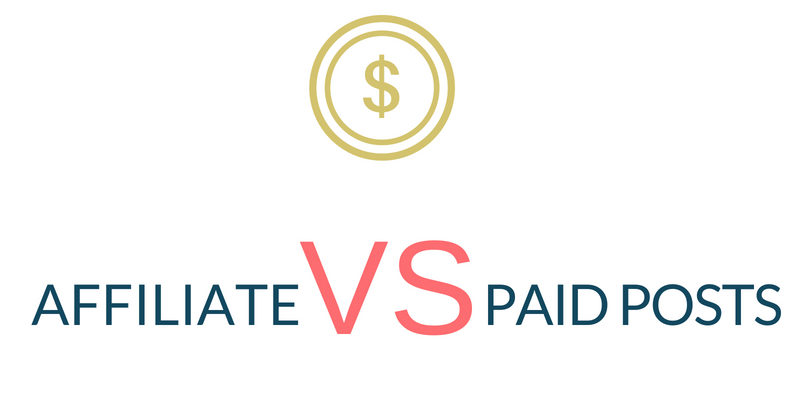
For example, you may shelf out $1000 to a famous YouTuber to mention your product at the start of his video but no one guarantees any sales after that. And the more famous the YouTuber is, the more money he/she asks for.
So, when it comes to affiliate marketing, the risk moves from the shop to influencers, since they don’t get any commission if they don’t convince their audiences to buy.
Affiliate Marketing vs. Ads. Which Will Be More Profitable?
There are two main cons regarding classic ads. First, most consumers generally have a negative stance toward ads. They find ads annoying since advertisers usually use cheesy ways to attract visitors’ attention and distract them from the main content. Moreover, consumers know when they are trying to be advertised to, which makes it more difficult for someone to click on a distracting banner ad compared to an affiliate link that has been placed by someone they already follow and appreciate.
Second, advertisers need a big budget and a professional who knows what he is doing in order to actually have a positive return on investment and not throw money in the ads pit without results.
Placing ads is an art in itself and targeting the right audience is harder than it may seem. If you target possible clients the wrong way, you just throw your money away to uninterested netizens. On the other hand, if you pinpoint your targeting too narrowly, you might be losing sales to other interested parties.

In contrast, when you have an affiliate program and affiliates working for your shop, they do all the targeting for you. They have their own audience to speak to and to send them to buy from you. You don’t really need to go after their audience yourself. They will do that for you and if the match is good, both you and the influencer get paid.
Why Is It Bad To NOT Have An Affiliate Program
Affiliates already have a network of loyal visitors that could prove to be a great base for your business to expand into new markets that you might have previously overlooked. These affiliates can help expand your reach using their own audiences. Their loyal audiences already follow the affiliates and are more likely to trust their opinion on the content produced by a shop. Affiliates can also help merchants scale their shop traffic, since the more websites link to their products, the better rank the site gets in search engines.

Furthermore, having an affiliate program enables you to diversify your revenue streams and become more competitive. If you don’t offer an incentive to affiliates to link to your brand, they will seek to link to places where they can get paid and these will be your competitors.
Why Bloggers Will Want To Promote Small Shops
Big shops are saturated with big bloggers, and due to how affiliate programs work, in big shops, your cookies are much more likely to get stepped over by the big players.
Here are the rules of most affiliate programs:
The sale must be completed within a specific time frame (e.g. within 30 days). This is tracked with cookies that must be enabled on the user's browser. If the sale is not completed within a specified time frame, it will not be credited to the affiliate. (check out more here)
The user will get your affiliate cookie when he clicks on your affiliate link. Affiliate cookies remain in a user's browser until they expire or are overwritten by a different affiliate's cookie. When your affiliate cookie is overwritten by the cookie of another affiliate, that other affiliate gets the commission in case of a sale. Your cookie gets overwritten when a user that has clicked on your affiliate link previously also clicks on the affiliate link for the same product of another affiliate at a later point in time and only after that buys a product. There are some rare affiliate programs that credit the sale to the affiliate whose cookie first got installed into a user’s browser.

If you are a small e-commerce business though, it is more likely that you’ll get sales through a smaller blogger. Micro-influencers who can get consistently higher rates of engagement on their content can yield better results for your shop for a much lower cost-per-sale.

The opportunities of the affiliate model for up-and-coming retailers are unique. By establishing the right affiliate program for your business, you can increase your reach and generate more sales. As a small retailer, you have the benefit of much closer relationships with your consumers than what big companies can achieve with their own consumers. Start with your loyal audience to recruit the right affiliates for your program. These people will be the first influencers who will endorse your brand, create content for your products, and help you establish your brand reputation.
